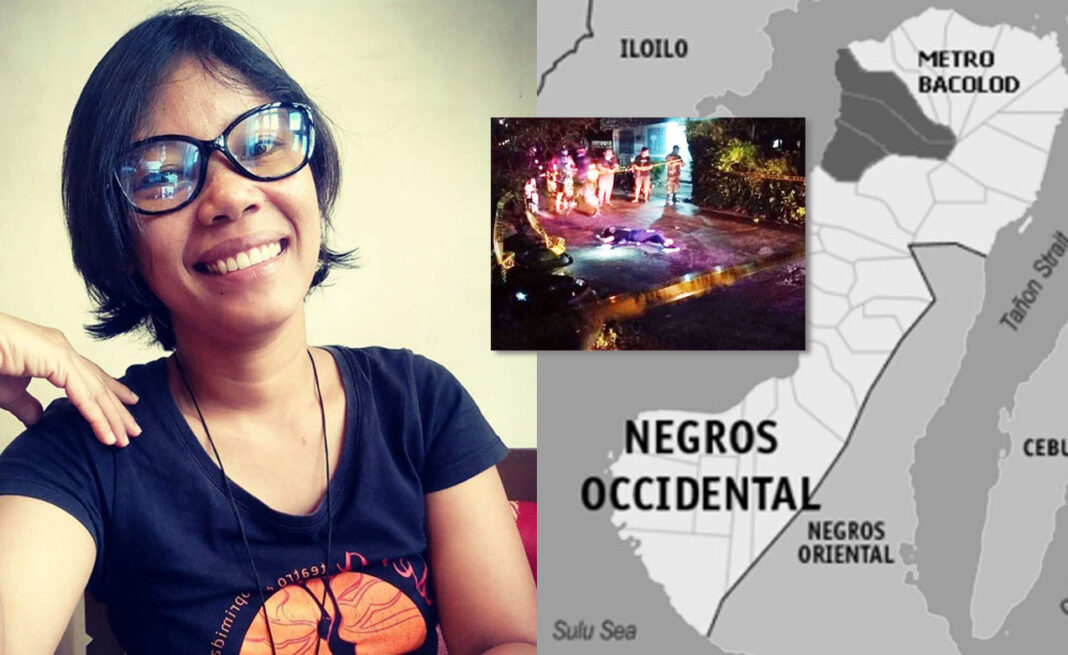On August 17, 2020, human rights activist Zara Alvarez was shot dead by unidentified assailants. A year after, justice has yet to be served and the assailants are still at large.
“Alvarez, 39, was imprisoned for nearly two years. After her release, she continued to work as Karapatan’s paralegal and as research and advocacy officer of the Negros Island Health Integrated Program,” human rights group Karapatan said in a statement.
The death of Alvarez exposes the rampant extrajudicial killings happening in the country under President Rodrigo Duterte’s administration. Aside from being imprisoned and eventually acquitted of what human rights groups asserted as trumped-up charges, Alvarez was also repeatedly red-tagged before her death. Rights groups said this also exposes the menace of red-tagging that has also served as a threat to harassment or death sentence to those who were red-tagged.
Protection she never had
In 2018, the Department of Justice (DOJ) petitioned a Manila court to tag more than 600 people as terrorists in a proscription case in compliance with the Human Security Act of 2007 (HSA), including the name of Alvarez.
The DOJ would eventually pare down the list to eight, after widespread protests over those tagged without due process or explanation, removing even National Democratic Front of the Philippines peace consultants that have been tagged this year as terrorists under the Anti-Terrorism Act of 2020 that replaced HSA.
In February 2019, the Manila court said that only Jose Maria Sison and Antonio Cabanatan have “unassailable links” to the Communist Party of the Philippines (CPP) and the New People’s Army. In December 2020, Cabanatan was found dead with his wife Florenda Yap. The CPP said the couple, who were retired since 2017, were abducted by the military in Oton, Iloilo on December 26, the CPP’s anniversary, and were tortured and killed. Oton police denied the allegations.
Aside from Alvarez and Cabanatan, two others in the original 2018 DOJ terrorist list were also killed: peace consultants Randy Malayao and Randall Echanis.
Alvarez was also supposedly going to stand as a witness to attest on government red-tagging against her, another activist in Negros, and all over the country. However, they were not allowed to testify and the petition was denied in June 2019.
“There is no evidence that petitioners have been susceptible to harassment and to increased police surveillance because of the gallery,” the Court of Appeals 14th Division stated on the denial of the petition on June 28, 2019.
She also appealed for protective writs and was denied. She appealed again until her brutal death. She died before the court could grant it to her.
“We are not simply revolted or frustrated. We are disgusted. We are angry,” Karapatan General Secretary Cristina Palabay uttered days after the death of Alvarez.
Duterte on human rights activists
Justice has yet to be served in many other cases of extrajudicial killings in the country, especially where suspected perpetrators are state forces. This is why human rights groups say a culture of impunity persists in the country.
That the president has no love for human rights or human rights activists does not help at all.
In a recent Talk to the People, Duterte once again castigated human rights workers amidst the country’s 4th COVID-19 surge.
“Napakatorpe naman nitong human rights ‘pag hindi kayo nag-ano. Ano ang ano ninyo? Magbilang lang ng patay? Eh p***** i**, ‘di maglipat kayo ng trabaho, huwag sa human rights. Punerarya kung ‘yan lang man ang trabaho ninyo.”
Prior to the cold-blooded death of Alvarez, her life was not easy. Serving the oppressed was made more difficult by a government that thinks helping the poor is turning them against the government. Being a human rights activist in this regime, she had been at the receiving end of death threats, intimidation, and red-tagging.





























